
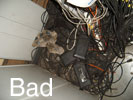
How does an end user go about selecting a supplier and a service provider of a CCTV solution? Lynne Larsen spoke to Kevin Monk, managing director of Technisec on vetting such companies.
According to Monk, the end user should have two vetting policies, one being a supplier selection and one being an integrator selection... and they work hand in hand. Often the end-user has a selected integrator on site, who would have been vetted by the supplier and is certified to be able to do the job. The other situation is that sometimes people have a product in mind that they want to implement and then they need to go through the vetting policy of the integrator so one goes back to the supplier who is able to recommend certified people and then they need to do their valuation policies.
"Installers are certified with the supplier of the equipment, especially when it comes to IP products," says Monk. They have to do training courses with the suppliers and get accreditation from the suppliers to install the equipment because it is at a different level than the normal analogue and the digital equipment. With IP, you are basically looking at virtually going onto networks, so you have got to have a certain level of competency within your workforce to be able to implement that.
I believe the suppliers should set the barriers to entry in the industry. There are some suppliers that deal only with certified installers, you have to go through the training and be certified by them before you can actually buy the product from them.
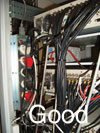
"This certainly raises the standard of the industry and I think the easiest way for our entire industry to raise the bar at certain product levels is by the suppliers putting an entry to barrier level there, but it is difficult for them to implement this across the board, because a lot of their business is 'box and drop' installers and once it is out of their hands it is not their problem.
"In terms of the integrator vetting, what I put across to the end user is: look at the companies' business compliances registration; have they got a VAT clearance certificate, a valid VAT certificate; do they have a letter of good standing with the compensation commissioner - are they paying their workman's comp over; do they have a UIF number; do they have a PAYE number; what insurance do they carry as a business? These are the questions that should be posed to them and if they have got nothing to hide they should be more than willing to provide answers.
"We often have it from the Government departments, you have always got to give a VAT clearance and a letter of good standing, they do not ask on insurances but I think it is becoming very important that companies do this. The important thing is business compliances - do they have liability indemnity. For instance in my company, we have indemnity, liability and defective workmanship covers, so if my guys install something and because of my installation we blow up an electrical circuit and it takes out fridges, for example, I am covered. Goods in transport, if I am transporting goods from my premises to a site or from a supplier to my offices and we have an accident, I am covered. A lot of the companies are not covered in those instances. There have not been a lot of instances but our industry is booming at the moment so it is going to become a more regular thing, especially with the way the roads are now.
"Then, Occupational Health and Safety (OHSA) compliancy, does the company comply to the Health and Safety Act? A lot of companies now are becoming increasingly health and safety compliant because in 2009 it will be gazetted and anyone who does not comply will face hefty fines. What we have when we go to site, is a health and safety manual that gets implemented on site. It includes a full organogram of the company, notifications, site specifics, evacuation plans, procedures all of that gets put in here, site instructions, emergency evacuations, what the disciplinary codes and warnings are for that site, procedures, safe work incidents, workmen's comp forms, everyone on site, their personal information.
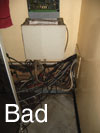
"References are always good and normally what happens in our industry, companies will give one or two references - one or two nice ones. But what clients should ask for is a list of 10 references. Reputable companies will have more than 10 clients and the client should be able to phone any one of them at any given time.
"Then supplier vetting, if they are going to have a look at a supplier, my advice to them is to make sure they are dealing with a supplier that is internationally recognised. Do they have links overseas? Look our good suppliers in this country, Norbain, ADI, Panasonic, they all have an international footprint and that their products are renowned throughout the world. Make sure that they carry leading branded products worldwide because what I have found is that South Africa is a country of opportunity for guys who find a niche product and they come in with just one or two products as a distributor and they are in the industry for two, three, maybe four years and then they're gone and that product is gone, leaving no one to service it and that is very important for the end user to understand. Make sure their stock holdings are good because the integrator can only deliver the service that he gets from the supplier.
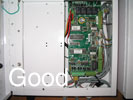
"Make sure that the supplier's footprint is around your footprint. Especially in terms of repair and distribution centres because what happens is a lot of people have national distribution centres but everything has got to be repaired in one city. If you are working in Cape Town, you want the product to be repaired in Cape Town.
"There is a need to institute a proper project protocol and I think that the problem with the end-users is that they never take ownership of this, it has always been a grudge purchase, it has always been a reactive policy where something has gone wrong and the installer is left carte blanche to pull his cables at his discretion. Clients must make sure they get a proper design scope of work and a project plan, which is a proper gap chart with milestone dates and accountabilities, responsibilities to the people. This is a working document.
"The client then has a document, at a later stage there is no saying 'I wanted it here and it is there'. Then it is important to have regular project meetings with the project manager and the technical person on site.
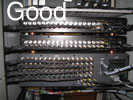
"As far as integrators go, the client needs to structure the service level agreement to suite his requirements. IP is starting to be handled by the IT manager now, they normally have very good service level agreements with their IT guys so it is forcing people to really get their service level agreements to a good standard. Remember whatever security solution you provide is only as good as the operational procedures that are in place.
"If you buy a car nowadays, are you going to buy a car without a maintenance plan? No. So do not invest in security without maintenance contracts. A decent 16-camera system installation can cost in the region of R100 000 and the customer wants the equipment to last. The sure-fire way of ensuring this is to vet the supplier, employ the services of an installer with a good track record, and then take out a maintenance contract."
© Technews Publishing (Pty) Ltd. | All Rights Reserved.